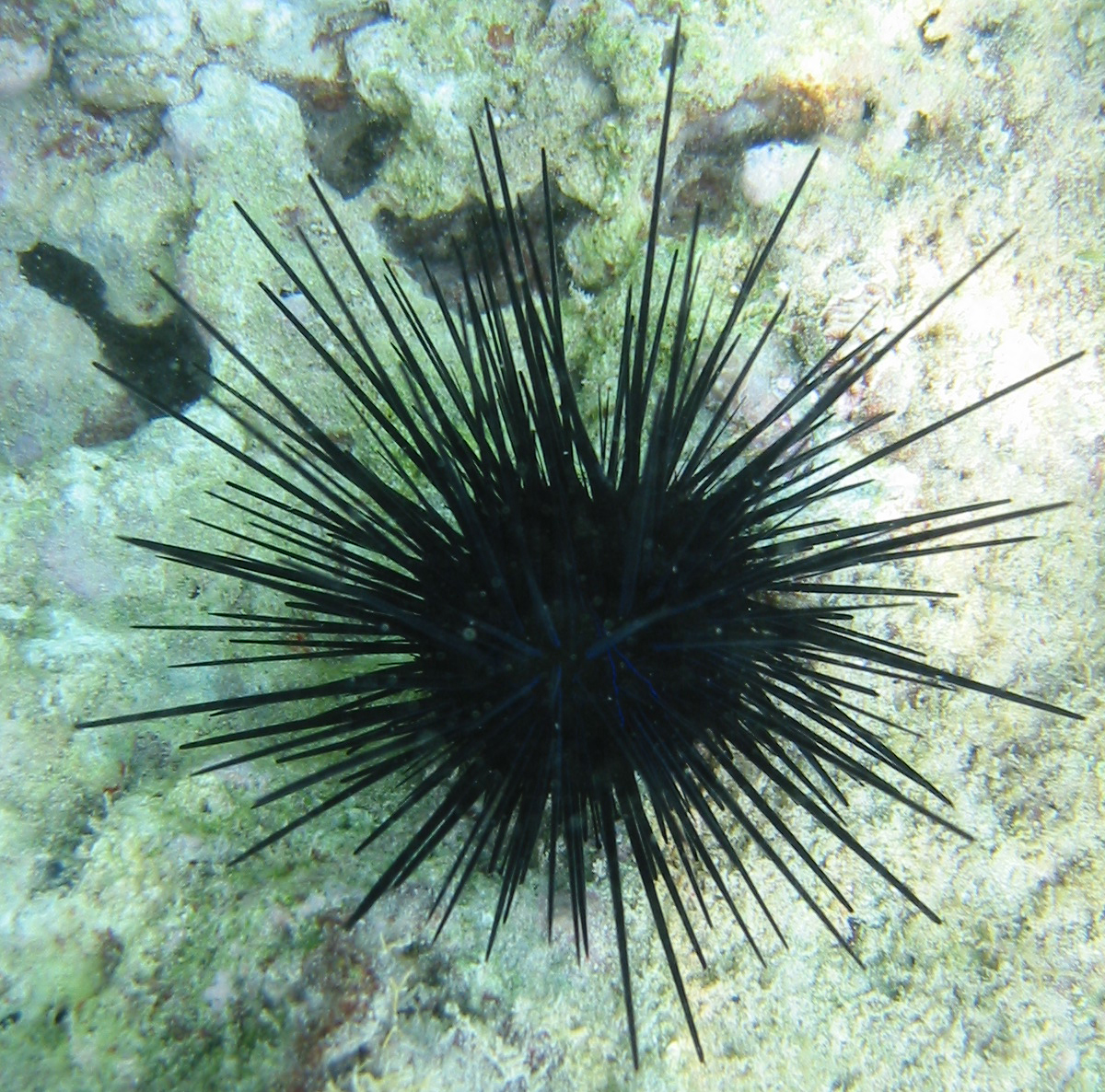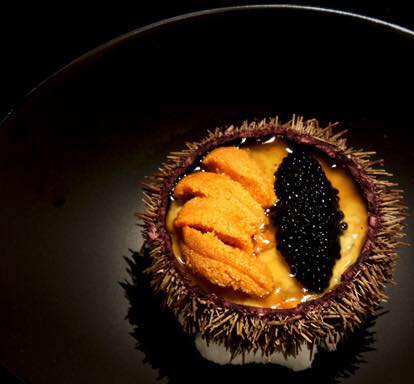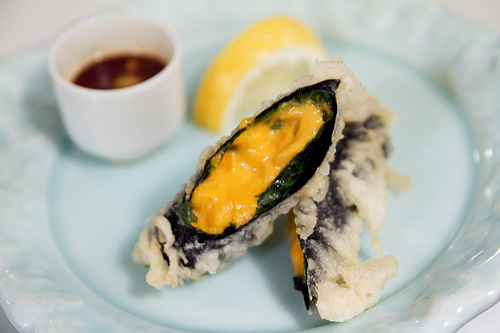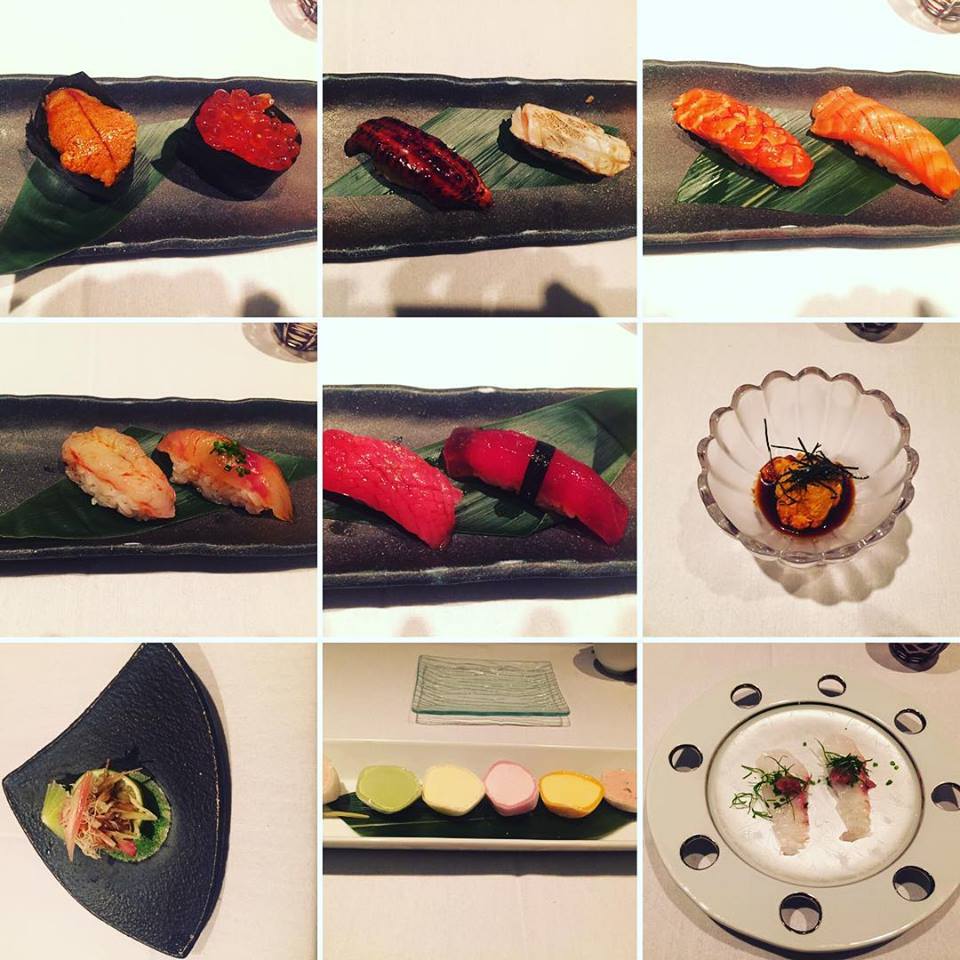Bright Orange Mushy Deliciousness: My Search for NYC’s Best Uni
The quest for the finest sea urchin and possibly, the meaning of life, at SakaMai, Shabu Shabu 70 and Soto in NYC.
My love for sea urchin began innocently enough on a work trip in Tokyo in 2003, enjoying dinner with a geisha performance on our last evening.
Our generous hosts raved about the geisha performance, but for me it was the bright orange-y mushy-textured uni that blew me away that night. For the first time in my life, my senses were opened as I embraced the smell, sight, sounds, touch and taste of an entire ocean in every bite of this delectable treat.
First, some education.
Sea urchins are spiny sea animals. According to Wikipedia, “sea urchins move slowly, feeding primarily on algae. Sea otters, starfish, wolf eels, triggerfish, and other predators hunt and feed on sea urchins. Their roe is a delicacy in many cuisines. The name “urchin” is an old word for hedgehog, which sea urchins resemble.”
Here are three fun facts about sea urchin:
- The best sea urchins are from Hokkaido, California and Maine. 50% of all California harvested sea urchins are exported to Japan. You have to be a licensed driver to harvest sea urchin of which California has approximately 500. All of Hokkaido’s sea urchin are consumed in Japan.
- There are different seasons for harvesting sea urchin, and in Maine, the state has specific harvesting schedules that has to be adhered to.
- Sea urchins have to be processed preferably within 24 hours after harvesting. YouTube has a few videos on how best to clean and extract sea urchin from their spiny husks. It is a quite of work. They are best consumed as soon as processed as they do not thaw well if frozen. They have a porous like texture so they do not travel well once processed.
Fast forward to today, living in New York City. Having my virgin sea urchin tasting experience in Japan has set a high bar since the Japanese are the finest curators of this wonderful delicacy. That said:
I have scoured high and low for the best places for sea urchin consumption in NYC.
Sakamai on the lower east side serves “an egg on egg on egg” dish, sea urchin with sturgeon caviar and scrambled eggs. An absolute must try. Their sea urchin on toast and Uni Mazemen are absolute delights I would highly recommend.
Shaba Shabu 70 on the Upper East Side serves a seriously awesome sea urchin tempura. I have no idea how any chef could maintain the integrity of uni encasing it gently with tempura batter, yet maintaining a clear distinction between tempura and uni flavors when consumed. I am blown away every time I order this dish at the restaurant.
Soto, a two Michelin star restaurant that serves fresh sea urchin and in combination with other types of seafood like lobster and sushi (of course).
If you prefer to have sea urchin unadulterated, Catalina marketing in California will ship processed sea urchin or sea urchin still in their spiny shells to your home for a small fee. The Lobster Place at Chelsea market also sells trays of processed sea urchin that one could combine with salmon roe, sea weed and cooked nishiki rice.
On a final note: combining sea urchin with beef or poultry is generally a poor idea, meat dilutes and strips away the true flavor of uni, and it is the saddest thing anyone can do.
Nom Nom Nom here
Sakamai
157 Ludlow St
b/t Stanton St & Rivington St
Lower East Side
Shaba Shabu 70
314 E 70th St
b/t 2nd Ave & 1st Ave
Upper East Side
Soto
357 6th Ave
b/t Adelphi St & Clermont Ave
West Village
The Lobster Place
Chelsea Market
75 9th Ave
Meatpacking District, Chelsea
Caution: sea urchin can be dangerous if stepped on, say, in Peru.
Kira also likes Sushi Azabu on a cold winter day.
Waddle is a growing community of foodies, bloggers, and writers suggesting and sharing experiences of memorable places. Become a contributor! >> email us




